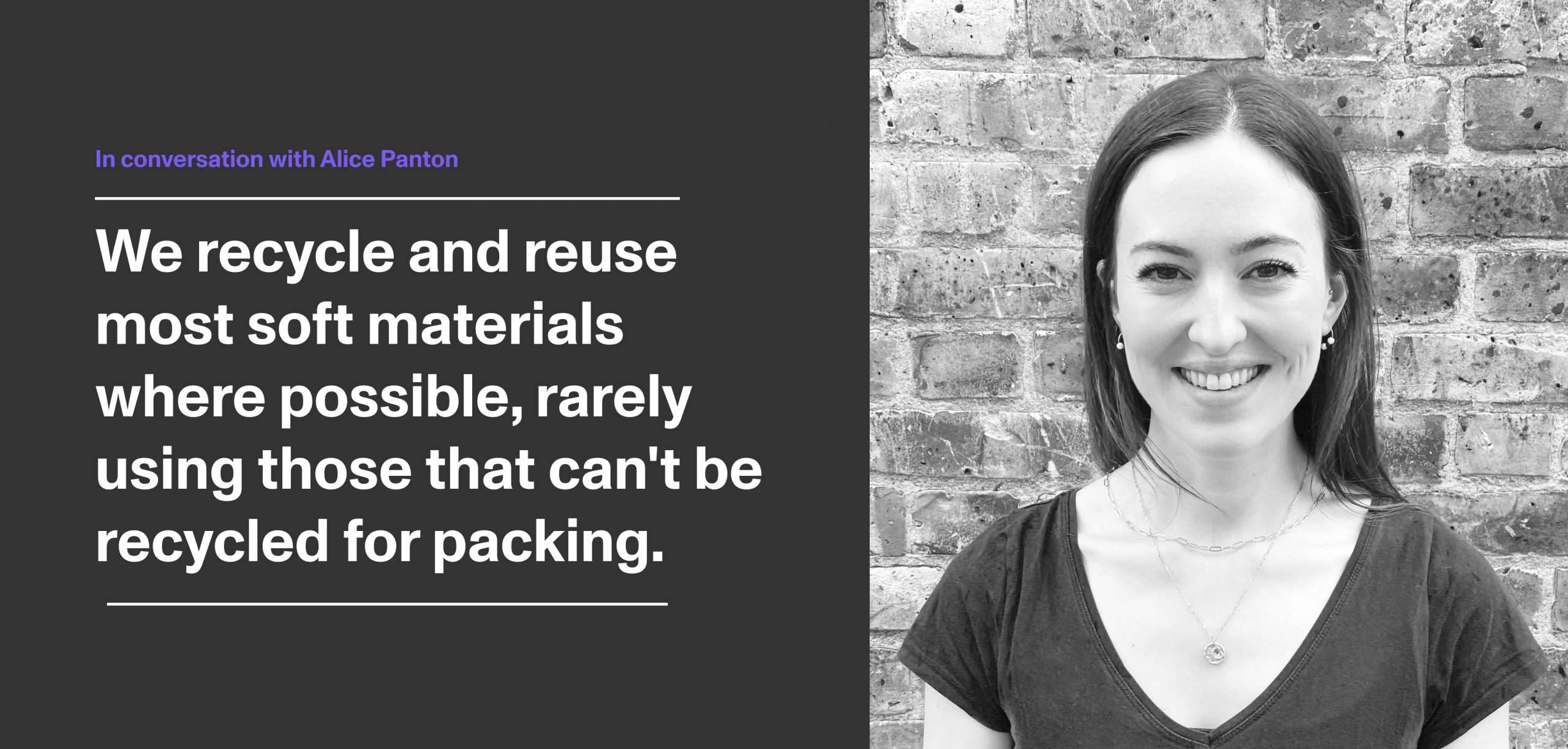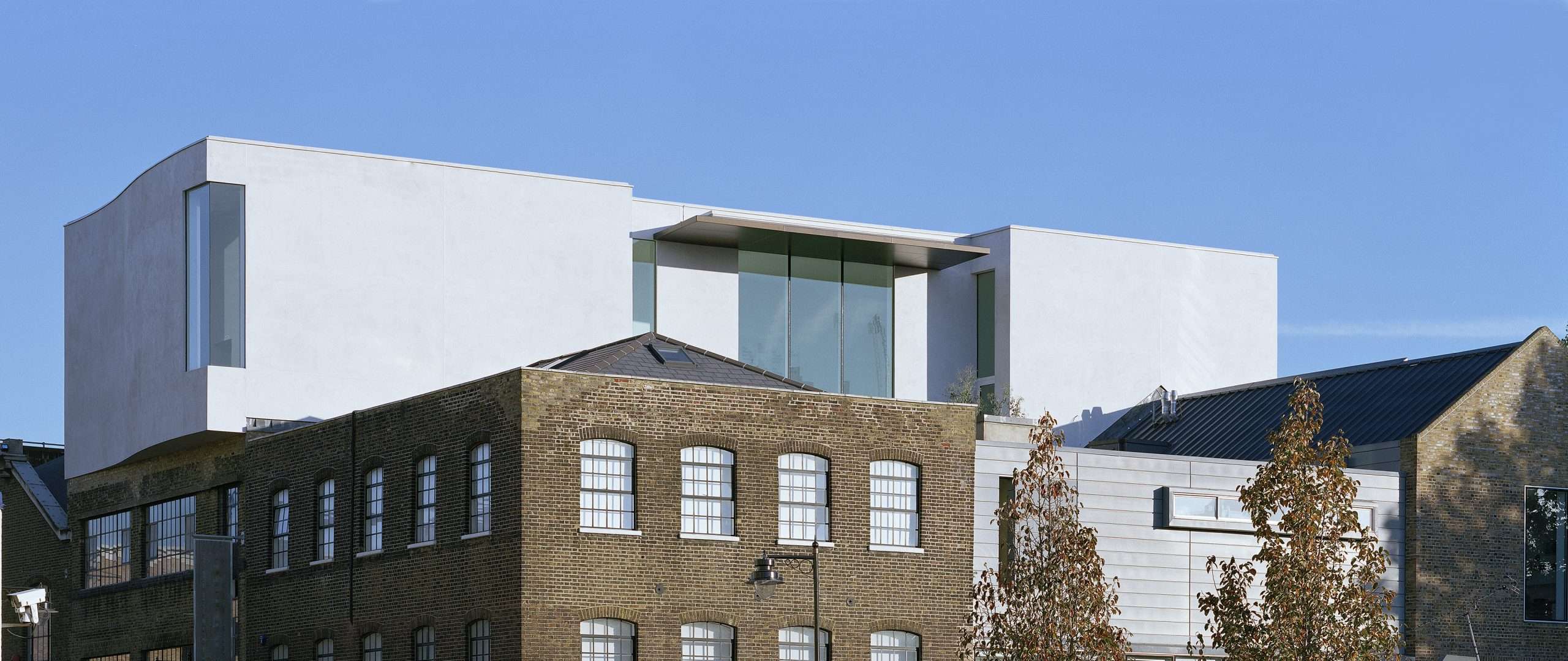
It’s been a hot topic within the industry for a while now and rightly so. Keen to share what others within the industry are doing to become more environmentally friendly, we speak with a friend and client of Queen’s, Alice Panton, from Victoria Miro gallery.
Alice has been a registrar for the past eight years and is currently four years into her role at Victoria Miro, where she manages their loans programme. If that wasn’t enough, Alice also liaises directly with around 15 artists and works closely on their customs records as well as working on client services and art fair arrangements with the rest of the Victoria Miro team. But it doesn’t stop there.
Interested to find out how being a registrar has changed during the pandemic and how Victoria Miro is working to become more environmentally friendly, we asked Alice a few questions. First up;
Aside from working from home for the past year, my regular routine will involve checking on various timely shipments, ensuring all internal records and paperwork are updated for our loans programme, our artists and our clients. Video meetings with different teams are scheduled throughout the week, alongside reviews of longer ranging projects for storage, customs and condition checking of artworks. I work closely with our exhibitions, technical and sales teams on a daily basis.
We are increasingly aware of our environmental impact internally and with external suppliers, and this recent focus on sustainability is starting to inform our decisions.
Internally, we implement measures to reduce our carbon footprint by organising a weekly shuttle truck between the gallery and London storage locations alongside minimising singular shipments and using shared sea containers where possible, which has the added benefit of reducing costs for all involved.
We recycle and reuse most soft materials where possible, rarely using those that can’t be recycled for packing. Supplier information is shared between contacts within the industry to further our collective knowledge. The gallery has also invested in ROKBOX reusable cases which we aim to utilise where possible during regular transit movements.
From an operations perspective, our front-of-house is already paperless, and we are encouraged within the offices to follow suit (this has certainly been easier to implement since working from home). We also understand our responsibility to purchase eco-friendly and biodegradable supplies and support local environmentally conscious businesses where possible. A bike-to-work scheme is offered to all staff, as well as other incentives to support green methods of commuting. The gallery is also directly part of various ecosystems given its unique location alongside an east end wharf – the safeguarding of the local moorhen and swan population is of paramount interest to the gallery as a whole!
We have also engaged in conversations over the years with external fine art agents, to understand how we might integrate their current and future aims for their facilities and supply chains, in terms of recycling materials, renewable energy systems and in-house waste-reducing innovations, with our own. We have raised the future prospect of carbon offsetting options and plans for hybrid/electric vehicles, and also discussed how to raise more awareness of these and existing sustainable options with the public and their client base, since these developments need to be made transparent to increase uptake, which is to the benefit of all.
Finally, since the beginning of the pandemic, the gallery has channelled energy into a variety of well-received online art fair presentations and virtual reality exhibitions, which by nature have a low carbon footprint considering the minimal shipping preparations involved. This has been a very engaging new activity that the gallery aims to continue sharing with visitors in various iterations alongside physical shows in future.

Victoria Miro, 16 Wharf Road, London N1 7RW Courtesy Victoria Miro (Photograph © James Morris)
Arranging regular consolidated shipments has been logistically complicated during the pandemic and post Brexit when dealing with customs delays, volatile shipping rates, tight deadlines and artist and client requirements, which we treat with utmost care. Additionally, the shifting loan schedules and amending of paperwork due to the pandemic has been particularly trying! However, we have worked closely to ensure logistics run as smoothly as possible.
Ultimately, progress can be challenging when it comes to changing our ingrained habits within the industry – multiple factors must be discussed and confronted, which can be uncomfortable. And yet growing support, sustained engagement and gradual action will benefit the arts as a whole. Though it’s hard for any one organisation to control the level and speed at which change happens, I’m never in doubt of the importance of taking action where possible, however large or small.
If you would like to know more about how we at Queen’s are working to reduce our Carbon Footprint, you can view our Carbon Plan here. For shipping, storage or installation requests, your Queen’s contact remains at your disposal. Alternatively, please contact [email protected]